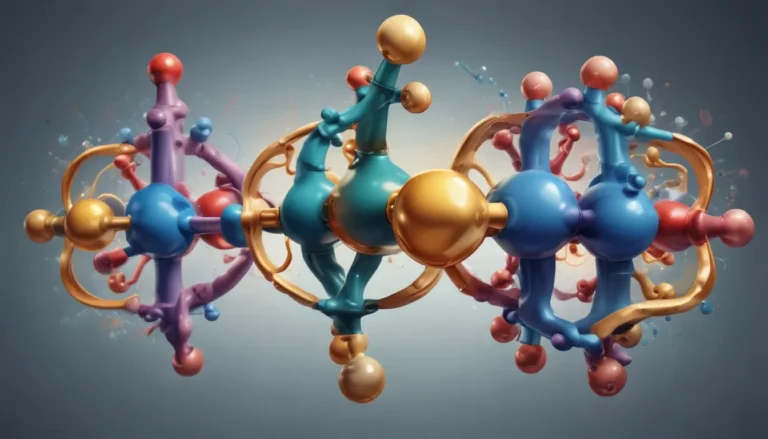A Note About Images: The images used in our articles are for illustration purposes only and may not exactly match the content. They are meant to engage readers, but the text should be relied upon for accurate information.
Nitrile, a synthetic rubber compound, has become a staple in various industries for its exceptional properties and wide-ranging applications. From healthcare to automotive and manufacturing, nitrile has proven to be an indispensable material. In this article, we will uncover the incredible world of nitrile and explore 19 mind-blowing facts that showcase its versatility and significance in different sectors.
Exploring the World of Nitrile
Nitrile is a synthetic rubber that is derived from the polymerization of synthetic compounds. It boasts impressive chemical resistance and durability, making it a preferred material in various industries.
The Impact of Nitrile in Healthcare
Nitrile gloves have revolutionized the healthcare industry with their superior resistance to chemicals and pathogens. These gloves provide a reliable barrier that protects healthcare professionals and patients from infections.
- A Safer Alternative: Nitrile gloves offer a safer alternative to latex for individuals with allergies. They provide comfort and dexterity without the risk of allergic reactions.
The Strength of Nitrile
One of nitrile’s standout characteristics is its high tensile strength, making it incredibly resistant to tears and punctures. This durability makes it an ideal choice for applications that require longevity.
Nitrile’s Chemical Resistance
Nitrile showcases exceptional resistance to a wide range of solvents and chemicals, making it a popular choice for industries dealing with hazardous substances.
- Outperforming Vinyl: Nitrile gloves have higher chemical resistance compared to vinyl gloves, making them the preferred choice for industries handling chemicals and solvents.
Applications in the Automotive Industry
Nitrile is widely utilized in automotive manufacturing due to its ability to withstand grease, oils, and other automotive fluids. It is commonly used for sealing gaskets, O-rings, and hoses.
Versatility in Various Industries
- Pharmaceutical Usage: The pharmaceutical industry benefits from nitrile’s chemical resistance, using it in the production of medications, chemical handling, and laboratory protection.
- Agricultural Protection: Farmers and agricultural workers rely on nitrile gloves and protective gear to safeguard against the chemicals, pesticides, and fertilizers used in the industry.
Environmental Friendliness of Nitrile
Nitrile is recyclable, reducing its impact on the environment. Proper disposal and recycling practices contribute to sustainable manufacturing processes.
- Durability and Recyclability: Nitrile’s durability and recyclability make it an eco-friendly choice for various applications.
Benefits of Nitrile Gloves
- Puncture Resistance: Nitrile gloves are more puncture-resistant than latex gloves, offering optimal protection against sharp objects.
- Chemical Resistance: Nitrile gloves provide reliable protection in industries dealing with chemicals, oils, and solvents.
Exploring Further
Nitrile’s fascinating properties and applications extend beyond gloves, with its use in adhesives, shoe soles, and conveyor belts due to its exceptional resistance to wear and tear.
Embracing the Marvels of Nitrile
Nitrile’s incredible characteristics make it a true wonder material that enhances safety and efficiency across various industries. Its resistance to chemicals, microbes, and punctures has solidified its position as a reliable and versatile component. As we delve deeper into the realm of nitrile, the potential for more exciting applications continues to unfold. Remember, the next time you encounter nitrile, acknowledge the fascinating facts that make it an essential and intriguing element in the world of technology and innovation.
FAQs about Nitrile
-
What is nitrile?
Nitrile is a synthetic rubber compound known for its resistance to chemicals, oils, and punctures. It is widely used in gloves, gaskets, seals, and various protective applications. -
Are nitrile gloves better than latex gloves?
Yes, nitrile gloves are superior to latex gloves in terms of durability, chemical resistance, and suitability for individuals with latex allergies. -
Can nitrile be used in the automotive industry?
Absolutely! Nitrile is extensively used in the automotive industry for producing fuel and oil-resistant hoses, gaskets, and seals. -
Is nitrile an eco-friendly material?
Yes, nitrile is considered eco-friendly as it can be produced without the use of natural resources and is readily recyclable. -
Are there unique applications of nitrile beyond gloves?
Apart from gloves, nitrile is used in adhesives, shoe soles, and conveyor belts due to its exceptional resistance to wear and tear.
Nitrile’s impressive qualities and diverse applications make it a substance worth exploring and leveraging for a wide array of purposes. Whether you’re in the medical field, automotive industry, or agricultural sector, nitrile’s benefits are undeniable. So, embrace the wonders of nitrile and experience the reliability and versatility it offers in various domains.






